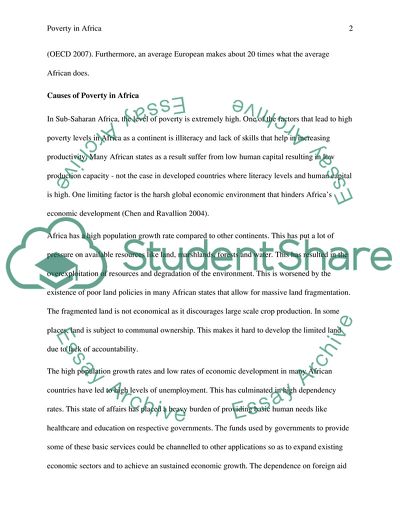Cite this document
(The Issue of Poverty with a Focus on Africa Case Study Example | Topics and Well Written Essays - 1250 words, n.d.)
The Issue of Poverty with a Focus on Africa Case Study Example | Topics and Well Written Essays - 1250 words. https://studentshare.org/sociology/1749661-world-poverty-global-economic-issues
The Issue of Poverty with a Focus on Africa Case Study Example | Topics and Well Written Essays - 1250 words. https://studentshare.org/sociology/1749661-world-poverty-global-economic-issues
(The Issue of Poverty With a Focus on Africa Case Study Example | Topics and Well Written Essays - 1250 Words)
The Issue of Poverty With a Focus on Africa Case Study Example | Topics and Well Written Essays - 1250 Words. https://studentshare.org/sociology/1749661-world-poverty-global-economic-issues.
The Issue of Poverty With a Focus on Africa Case Study Example | Topics and Well Written Essays - 1250 Words. https://studentshare.org/sociology/1749661-world-poverty-global-economic-issues.
“The Issue of Poverty With a Focus on Africa Case Study Example | Topics and Well Written Essays - 1250 Words”. https://studentshare.org/sociology/1749661-world-poverty-global-economic-issues.


